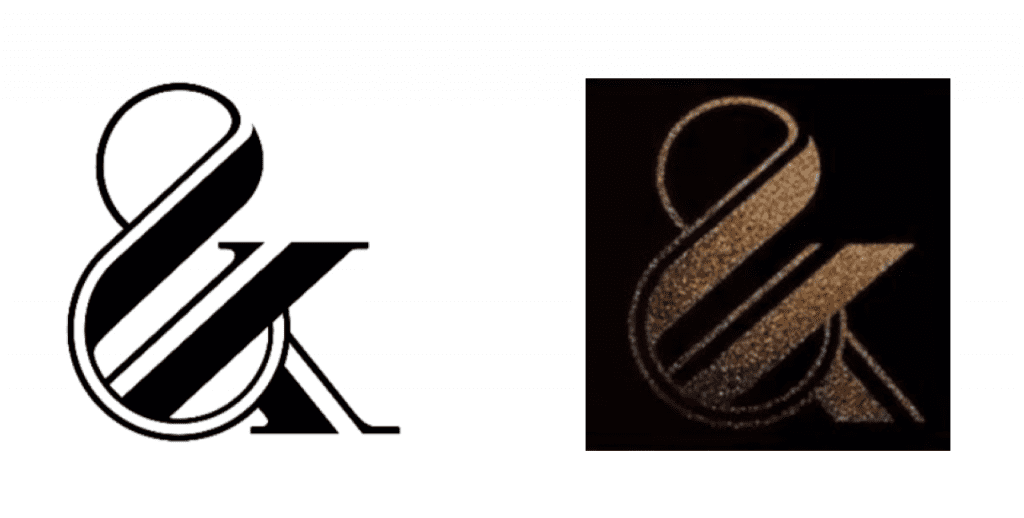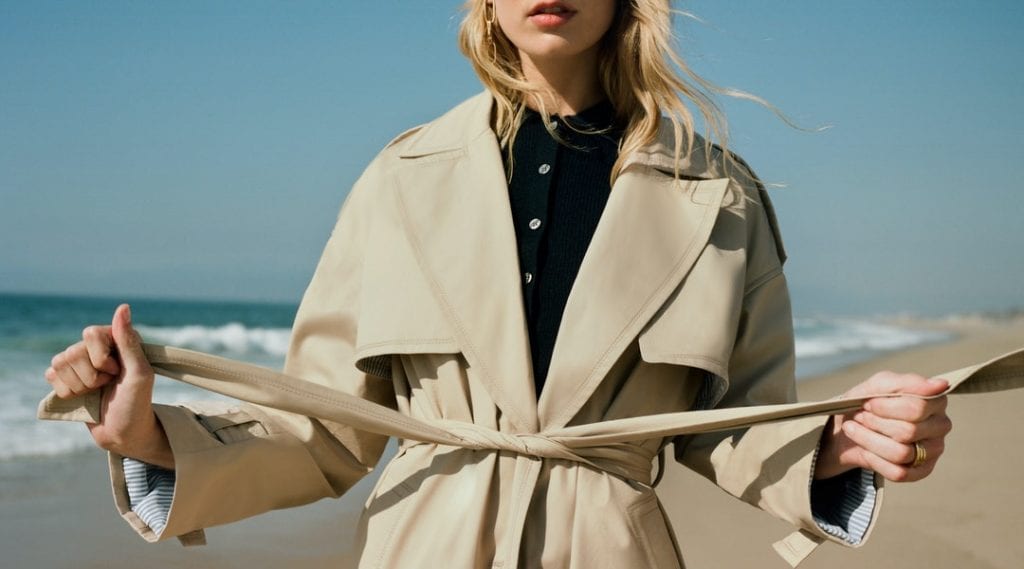Banana Republic is being sued over a typeface – or to be more specific, it is being sued for allegedly co-opting a typeface-specific ampersand. In a newly-filed complaint, Moshik Nadav Typography LLC – an “innovative typography and graphic design business” – alleges that the Gap-owned retailer has “engaged in an extraordinary, large-scale and widespread commercial use” of the little “and” symbol from its “distinctive and unique” Paris Pro typeface in an “extensive digital marketing” campaign, as well as on its “worldwide social media platforms.”
According to the complaint, which it filed in a New York federal court on Tuesday, Brooklyn-based Moshik Nadav Typography LLC (“Moshik Nadav”) claims that in 2012 in furtherance of its business of designing and licensing “artistic typefaces, and logotypes in digital formats for headlines in fashion magazines, as well as logos for luxury and high-end brands,” it created “a distinctive and unique artistic typeface font” called “Paris Pro.” Part of the Paris Pro typeface – which Moshik Nadav says “has a specific artistic expression that showcases [Mr.] Nadav’s creativity as a graphic designer and typographer” – is a stylized ampersand.
Not your average ampersand, Moshik Nadav argues that the symbol is a “unique artistic logogram” that serves as “the centerpiece of Nadav’s brand identity.”
The problem at play, according to Moshik Nadav is that instead of paying to license the Paris Pro ampersand or otherwise receiving Nadav’s authorization, Banana Republic opted to copy the symbol and use it in a commercial capacity, including on its social media accounts, e-commerce site, and in its email newsletter in order to “encourage Banana Republic’s millions of followers to purchase Banana Republic’s products.”
According to Moshik Nadav, “the overall look and feel of Banana Republic’s reproduction of the Paris Pro ampersand is substantially similar to the Paris Pro ampersand,” as the retailer “intentionally copied or caused to be copied the Paris Pro ampersand.” As a result, the company claims that it has been deprived “of any compensation for [such] commercial use of [its] work.”

Against that background, the company – which says that its previous clients have included Vogue, Estee Lauder, Elle UK, Ann Taylor, Volkswagen, Harrods, Target, Fast Company, and GQ – sets forth a single cause of action unjust enrichment on the basis that “by engaging in commercial use of the Paris Pro ampersand, Banana Republic received a benefit … without receiving the necessary commercial license at the plaintiff’s expense.” In furtherance of its claim of unjust enrichment, in connection with which Moshik Nadav will have to show that Banana Republic enjoyed a benefit as its expense, the company is seeking damages in “an amount greater than $75,000” to be determined at trial.
Interestingly, Moshik Nadav’s counsel appears to allude to copyright and trademark causes of action in the complaint – referring to the “specific artistic expression” that is the stylized ampersand and the “substantially similar” iteration used by Banana Republic (substantial similarity is a test to assess copyright infringement), and asserting that the “distinctive” symbol not only serves as “the centerpiece of [its] brand identity,” but that the company “sells merchandise, including jewelry and men’s and women’s apparel, prominently featuring the Paris Pro ampersand on Nadav’s website.” However, even with such language in mind, the company limits it claims exclusively to unjust enrichment, likely given that the aforementioned types of intellectual property do not provide protection for typeface designs. (We talk a bit about that here in connection with Kanye West’s Sunday Service fonts).
Looking beyond the protection of a typeface, though, trademark law is not necessarily out of the picture, as it is, in fact, capable of protecting “any word, name, symbol, device, or any combination thereof, used to identify and distinguish the goods/services of one seller from those of others,” assuming that such a mark acts as an indicator of a single source. And it is worth noting that while Nadav does not claim trademark rights in the stylized ampersand in its complaint, despite using it in a logo-like capacity on its website, and while the ampersand may seem like little more than a common grammatical symbol, others maintain registrations for their own versions of the little “and” symbol.
At-home nailcare brand Olive & June, which has fared well in light of COVID-related salon closures, and womenswear brand Agnes & Dora, for instance, both maintain trademark registrations for their specific stylizations of the symbol, as do stationary company Archer & Olive and Toronto-based lighting brand Amped & Collection, among others – all of which prominently display their takes on the ampersand as part of their branding. Olive & June’s Instagram profile photo, for instance, is in that shape of that the brand’s ampersand, albeit made out of flowers; the same goes for Agnes & Dora, which similarly opted to put its ampersand front and center on its social media accounts, likely in an attempt to bolster the visibility of – and its rights in – that mark.
While Banana Republic would almost certainly argue that its use of the ampersand is decorative in nature and not meant to serve as an indicator of source of its goods/services, an argument that – if successful – would serve to chip away at any hypothetical trademark infringement claim made by Nadav (as in order to infringe another’s mark, you must use that mark in a source-identifying capacity), no such argument will be in play due to the lack of trademark claims lodged by the plaintiff. As for what Banana Republic’s defense(s) will actually be, assuming that it does not opt to swiftly settle the case by paying a retroactive licensing fee to Nadav, stay tuned.
A representative for Gap, Inc. did not respond to a request for comment.
*The case is Moshik Nadav Typography LLC v. Banana Republic, LLC, 1:20-cv-08325 (SDNY).














